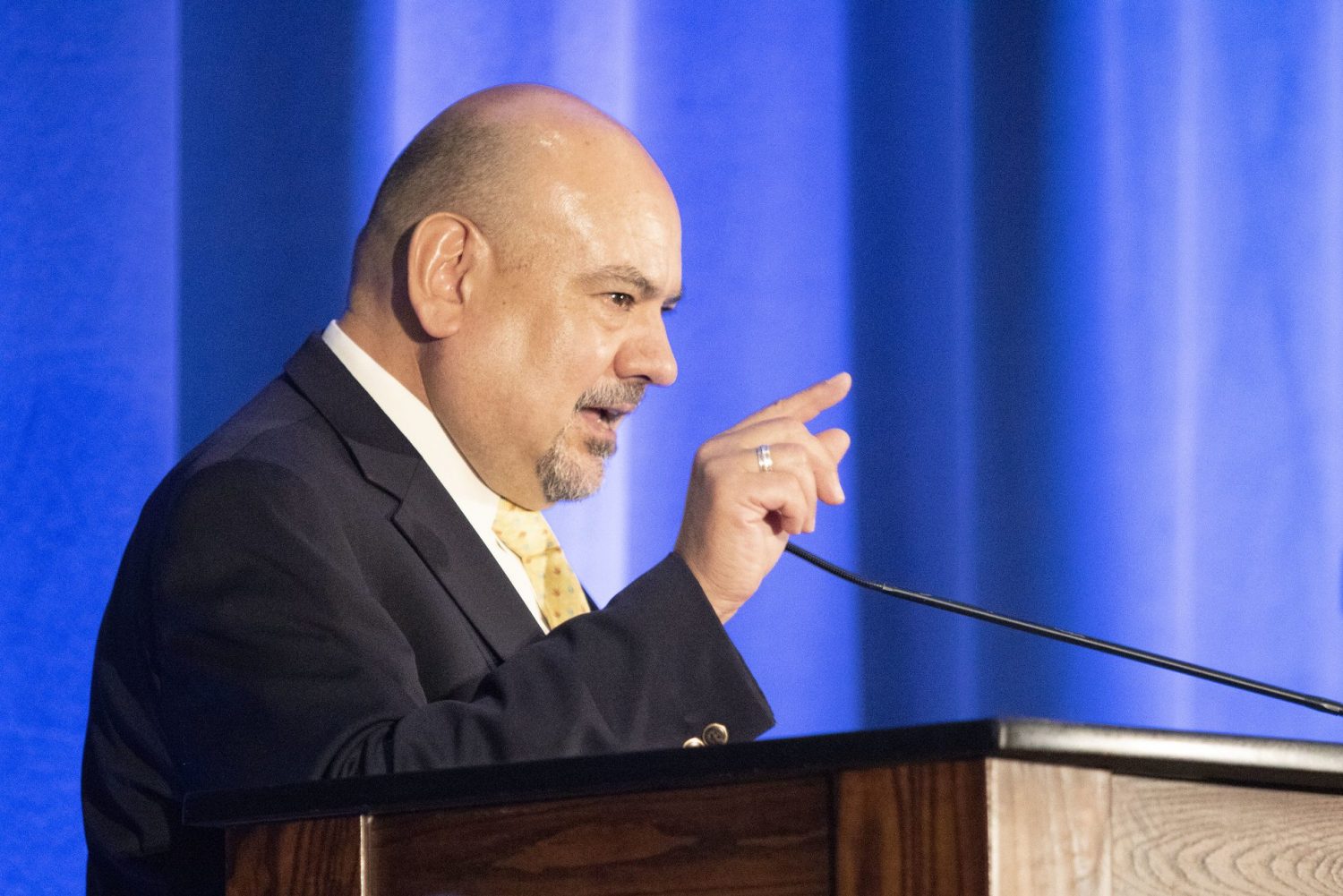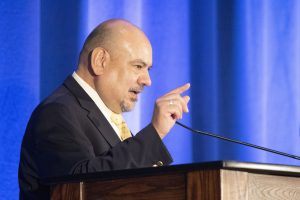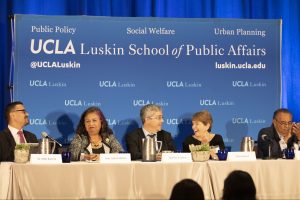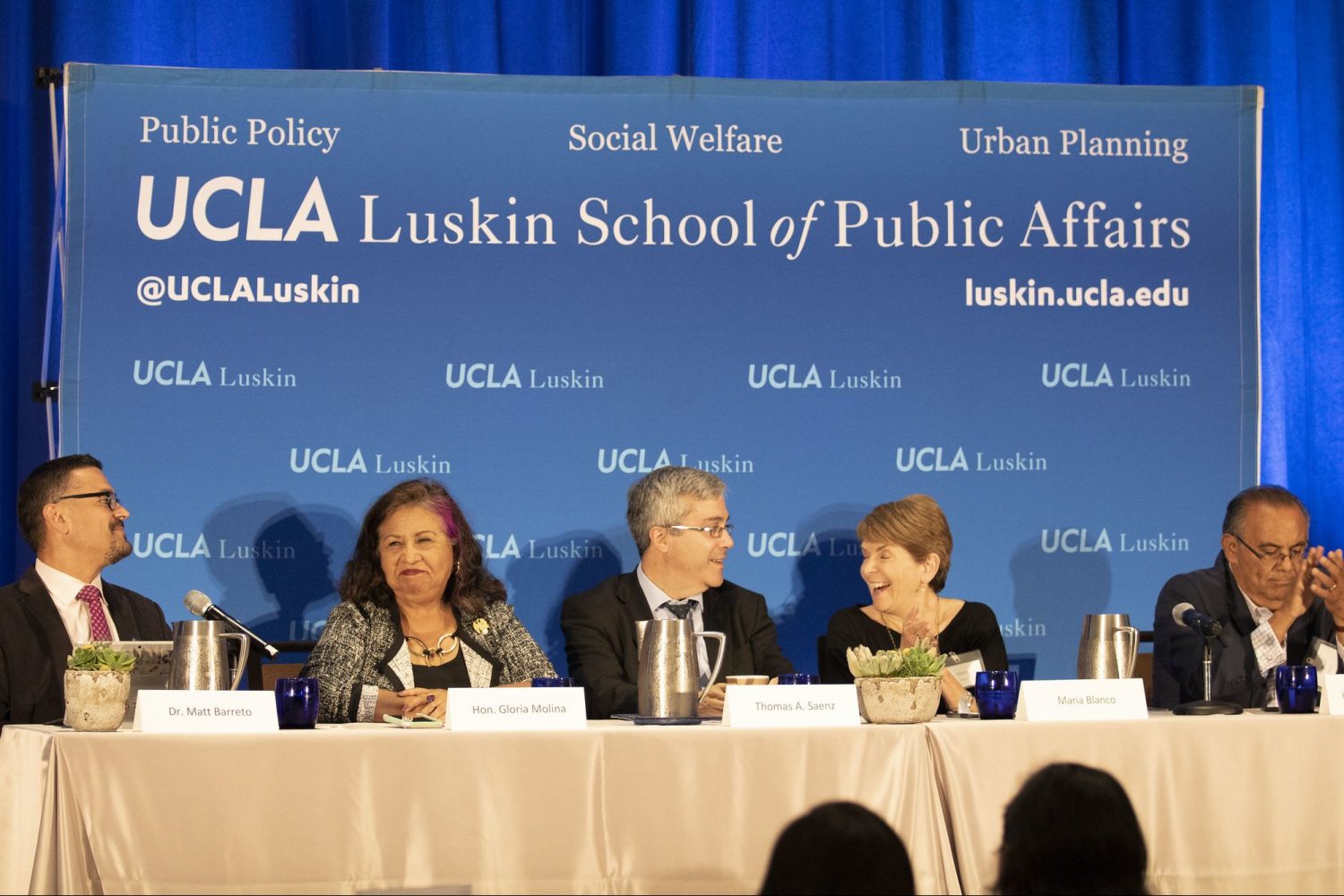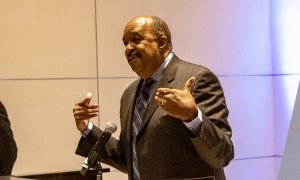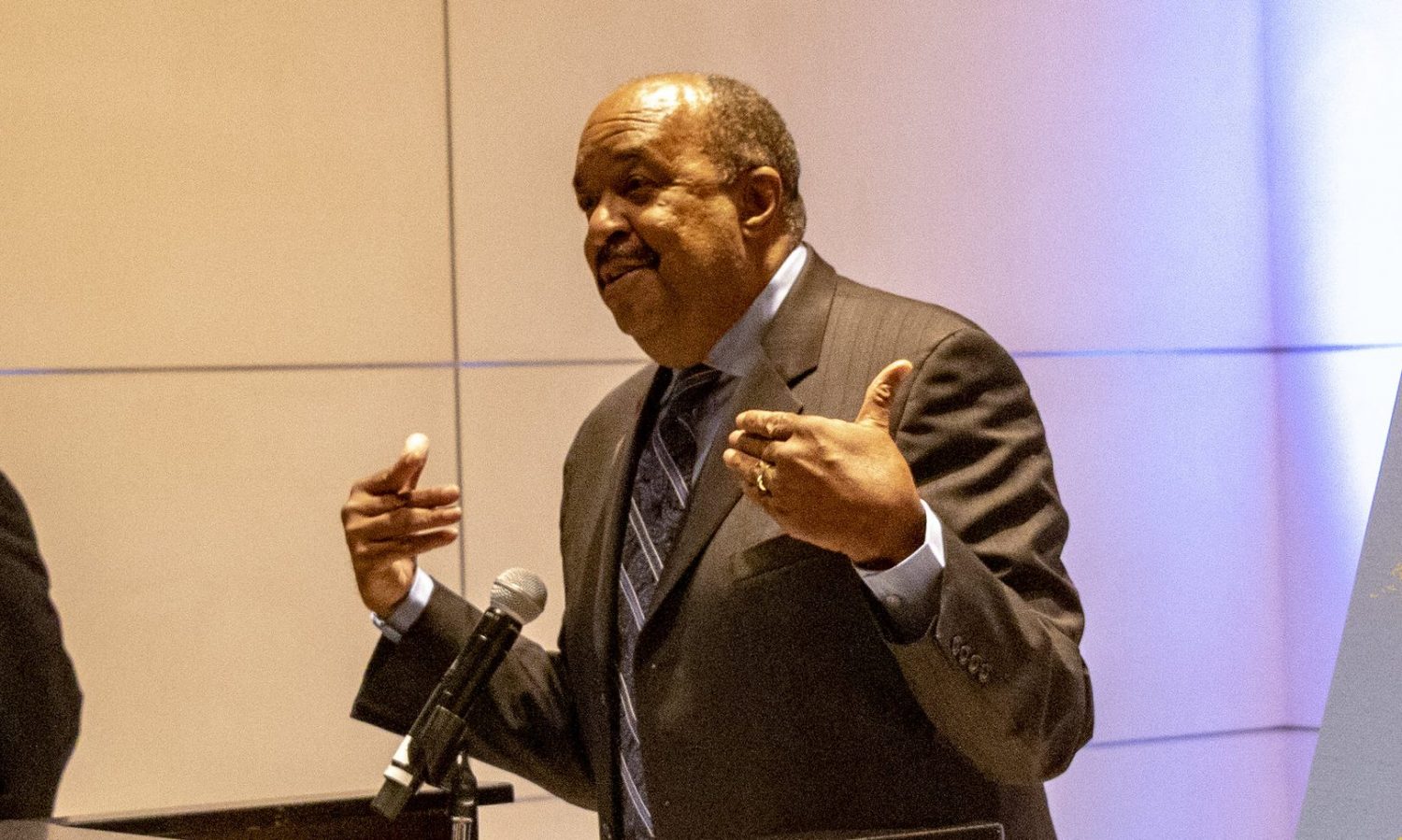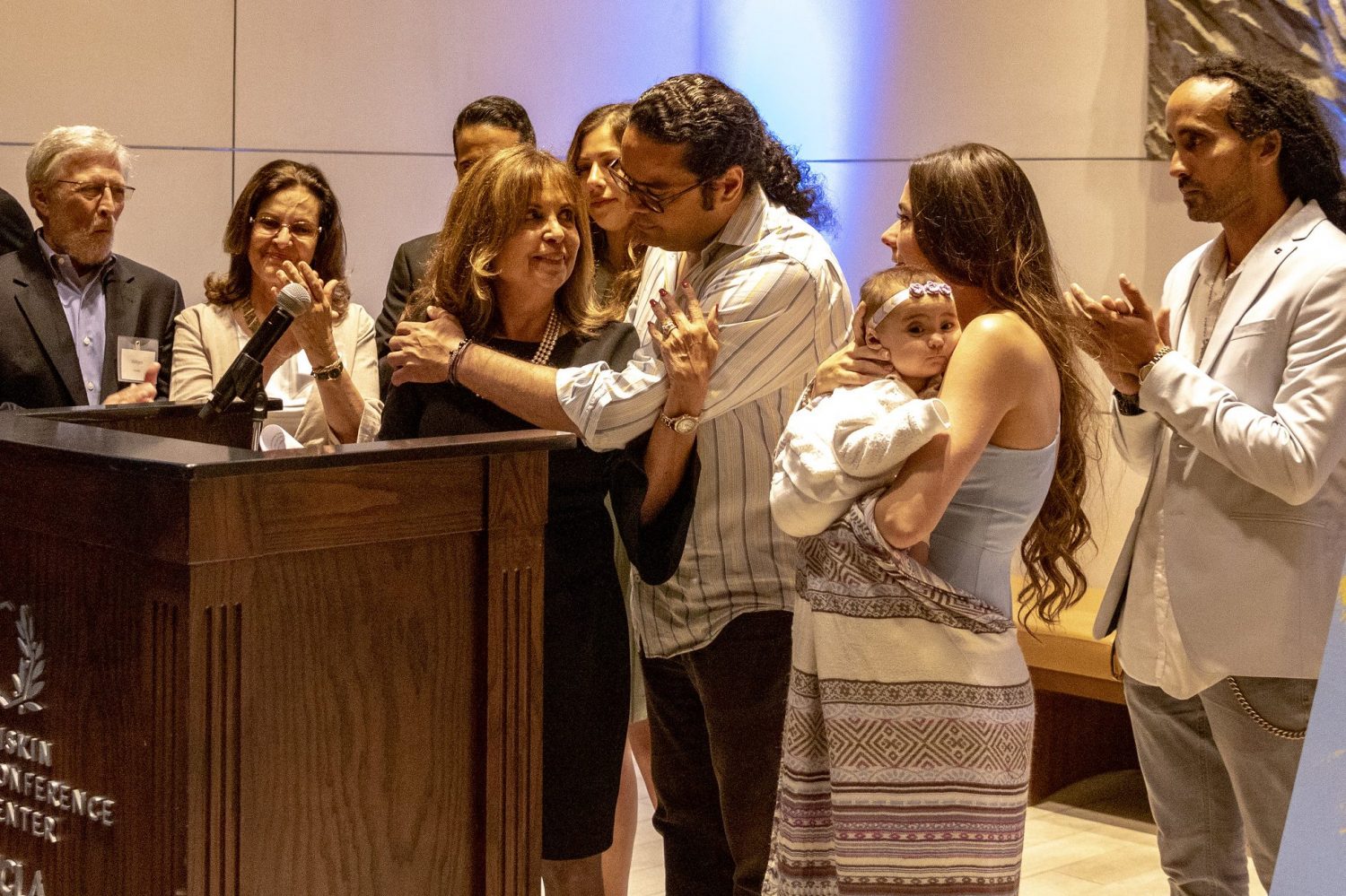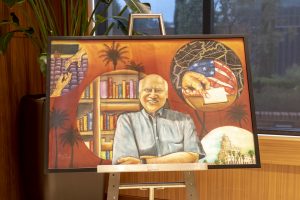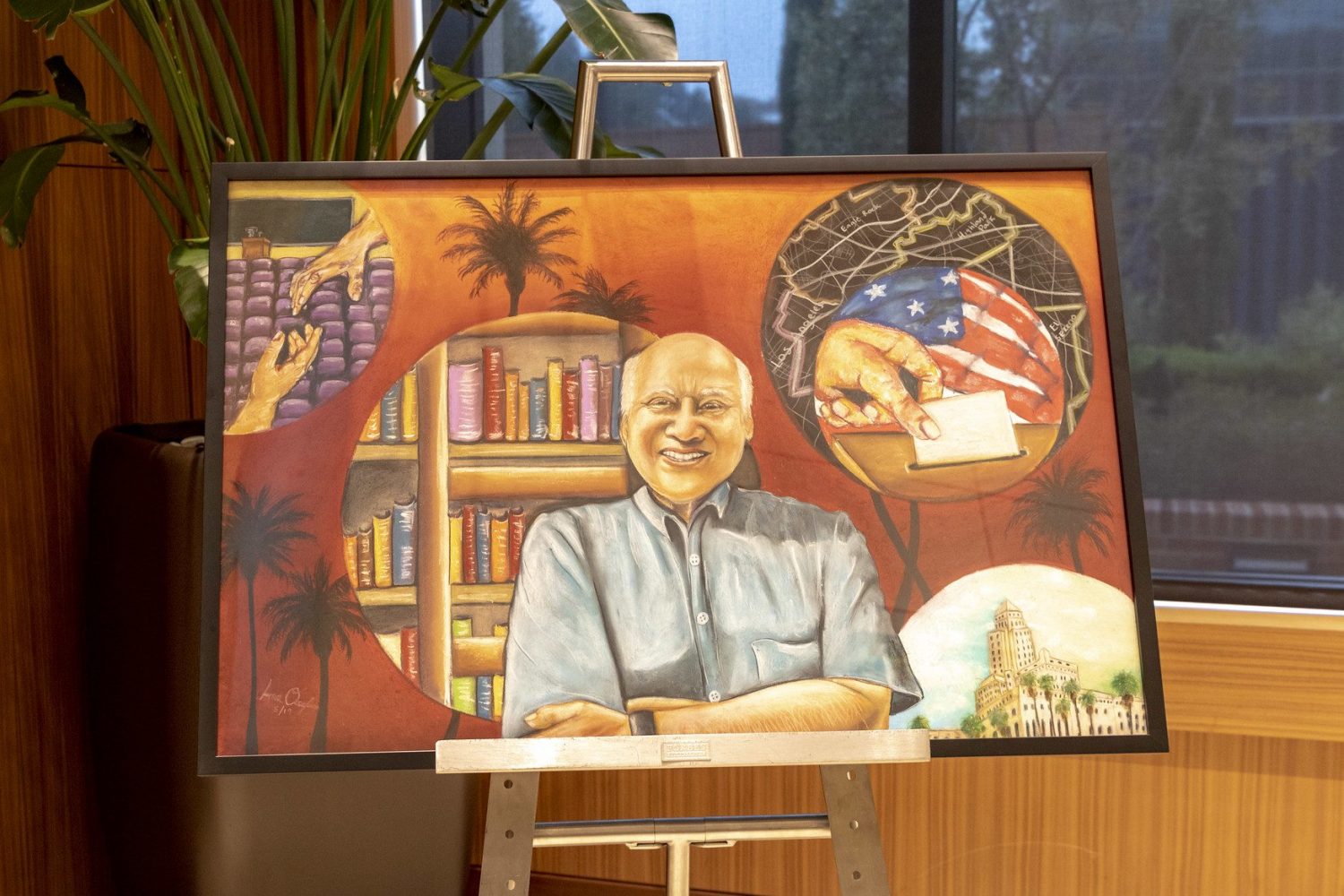REFLECTIONS ON LEO ESTRADA
Students, colleagues, friends and family of Leobardo Estrada gathered in May 2019 to honor the UCLA Luskin Urban Planning trailblazer. Many of his former students sent tributes from their posts around the world. Here are some of the remembrances:
“The sheer joy that he got from encouraging young people to explore … to relish in the act of discovery, and to grow as you challenge yourself to do something you’ve never done before — Leo knew just how to give young people confidence, knowing that he would be there to hold them gently and firmly.”
— MONICA LOZANO, president and CEO of College Futures Foundation and lifelong friend of the Estrada family
“When Leo said something nonchalantly, it meant you better do it. … I’m here to say, Leo, we did it for you.”
— JESUS GARCIA MA UP ’87, demographer and educator who was one of Estrada’s first geographic information system students
“As a doctoral student, he asked me, ‘Who do you want to be? And how will you use your degree to advance the field, to think critically about our world as urban planners, policymakers and activists?’ ”
— MICHELLE MAGALONG MA UP ’03, PhD UP ’17, University of Maryland postdoctoral fellow who took Estrada’s undergraduate, master’s and doctoral classes
“He was our Yoda in so many ways. … Whenever he spoke, it came from a sacred place, seeking what was needed to help women break out of poverty. … Because of Leo, women found their way, we all dreamt a little bigger.”
— BEATRIZ STOTZER, CEO of New Capital LLC who served with Estrada on the board of the nonprofit New Economics for Women
“He was brilliant at seeing the weaknesses and the strengths of individual people. …He was fearless but polite and kind and everything else in saying, ‘You’re making a huge mistake. This is not good for UCLA, this is not good for our students.’ ”
— JANICE RIEFF, UCLA history professor who served with Estrada on the university’s Academic Senate
“When he opened his mouth, it was like hushed silence in the crowd because people knew that wisdom was going to come pouring out of that brain and out of his mouth. … The way that he could look you in the eye with that very soft-spoken voice, with that compelling, precise, incisive logic, and just challenge you to be courageous, just challenge you to take it to the next level.”
— ROBERT ROSS, president and CEO of the California Endowment, where Estrada was a founding member of the board
“He spoke to you about excellence as a scholar by asking you to look at your work from the larger perspective of making a life path, a real contribution to others and to bringing a deeper human meaning to all your projects. He made time to talk about music, poetry and life before talking about your dissertation. He put planning in the real context of a rich, full life.”
— ROHINI TALALLA, MA UP ’77, PhD (ABD) ’15
“Leo, like many others I am so blessed to have you as my mentor, friend and brother. You impacted the lives of so many of your students and colleague with your humility, love, empathy and selflessness that the void is immense.”
— ALEXANDRE BABAK HEDJAZI, PhD ’07
“Leo was extremely peaceful and patient when he was walking me through my Ph.D. His influence is still with me when I work with my own Ph.D. students.”
— JUNG WON SON, PhD ’04
“Leo was more than a mentor — he was a friend, an oracle, a sounding board, a reading partner and a role model for hundreds of Latin@s who dedicated their lives to shaping more equitable cities. I still feel Leo’s presence each day. His life force came from living with an open heart and giving freely of himself to others. His genuine demeanor always made time for his students, and made me, as a disabled person of color, feel included. He would remind me that I had a role and a contribution to make in the academy.”
— VICTOR PINEDA PhD ’10
“He taught me to meet people where they are, and to see and support their vision. It is this gift that is perhaps most incredible to me, and I strive to carry on that legacy. Being understood, not just for what you do but for the vision that drives it — this changed my life. Leo saw and supported me, and I hope to be able to pass that gift on to my own students.”
— MARCIA HALE, PhD ’18
“As for so many others who had the good fortune to be his student, Leo was a lantern in the dark and a compass in the storm, an unassuming and steadfast role model. How lucky we were to have had him in our lives. I hope that we are all able to honor Leo’s memory, by paying it forward, again and again.”
— MARLA PETAL, PhD ’04
“Unlike most professors who are predominately skilled at talking, Leo is a gifted listener. He truly ‘hears’ you and listens without judgment. … His empathy and respect for students of color, first generation college students, international students, students who are parents and female students has made such a difference to transform students to graduates and working professionals.”
— KARNA WONG, PhD ’15
“Leo was a constant champion for my research on the then unusual topic of faith-based development. … My fondest memories of Leo are when we met to go over my latest chapters while writing the dissertation. As a full-time, working mom, it was sometimes difficult to make the trek from my downtown office to Westwood. From time to time, Leo would come to my office, sit in a conference room, and go over my latest work. Leo’s approach was anything but typical.”
— LEZLEE HINESMON MATTHEWS, PhD ’04
“He was always kind and thoughtful and completely selfless. He saw a strength in me that I could not see and he empowered me to unleash it. … We should all try to channel Leo and promote tolerance, inclusiveness, collaboration — with data, he would say. Leo was soft-spoken but the power of his words and his work were a catalyst for change. Make him proud.”
— IVELISSE ESTRADA
